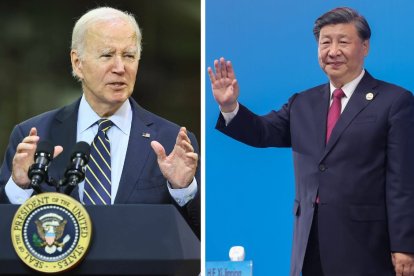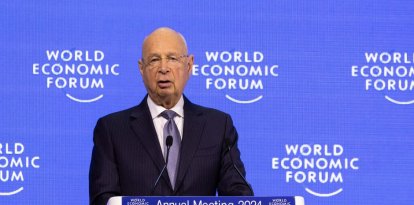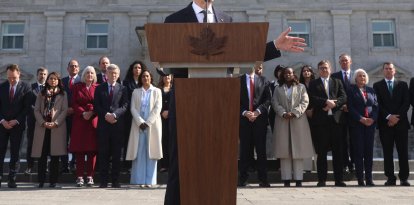Joe Biden will meet with Xi Jinping on Nov. 15 in San Francisco to ‘stabilize’ the nations’ bilateral relationship
The war in Israel, the fight against fentanyl production and electoral interference are some of the issues the leaders are expected to discuss.

(Cordon Press)
President Joe Biden and his Chinese counterpart, Xi Jinping , will meet in San Francisco on Wednesday, Nov. 15. It has been a year since they last met, when they held a bilateral meeting before the G-20 summit in Bali. The objective of the meeting is to "stabilize" the relationship between the world's leading economies, as stated by a senior United States official and reported by AFP.
"The leaders will address issues of interest in their bilateral relationship, the importance of strengthening open lines of communication and responsible competition management, as well as a range of regional, global and national issues," senior US officials said in conversation with El País.
Among the issues that the leaders are expected to discuss is the war in Israel, the fight against fentanyl - where Biden would ask Xi to control the laboratories that produce the precursors of the drug -, the Chinese ambition to take over Taiwan, electoral interference and artificial intelligence, amongst others.
A chance to correct course?
The Select Committee on the Chinese Communist Party, chaired by Republican Representative Mike Gallagher, urged the president to seize the opportunity to "reverse months of misguided approaches to China."
In a letter to Biden, 13 Congress Republicans praise some federal government actions, such as semiconductor export controls, but note that most of the measures, which have been taken with the intention of appeasing Beijing, have had no effect. Instead, they have resulted in an abandonment or delay of "'competitive' or defensive actions."
They also reproach it for not having imposed any sanctions on high-ranking ChineseCommunist Party or Hong Kong officials for "the erosion of Hong Kong's autonomy" or abuses against the Uighur minority in Xinjiang. The U.S. government's actions have failed, for example, to force China to act against the export of substances needed in the production of fentanyl or to "stop its unprecedented campaign of espionage against the United States."
The members of the commission also recommended a series of commitments that the Democrat should try to obtain from the communist leader. These include releasing all Americans detained on Chinese soil, imposing greater controls to identify those involved in the trafficking of fentanyl precursors, and ending all military operations in Taiwan's air defense identification zone.
RECOMMENDATION





















